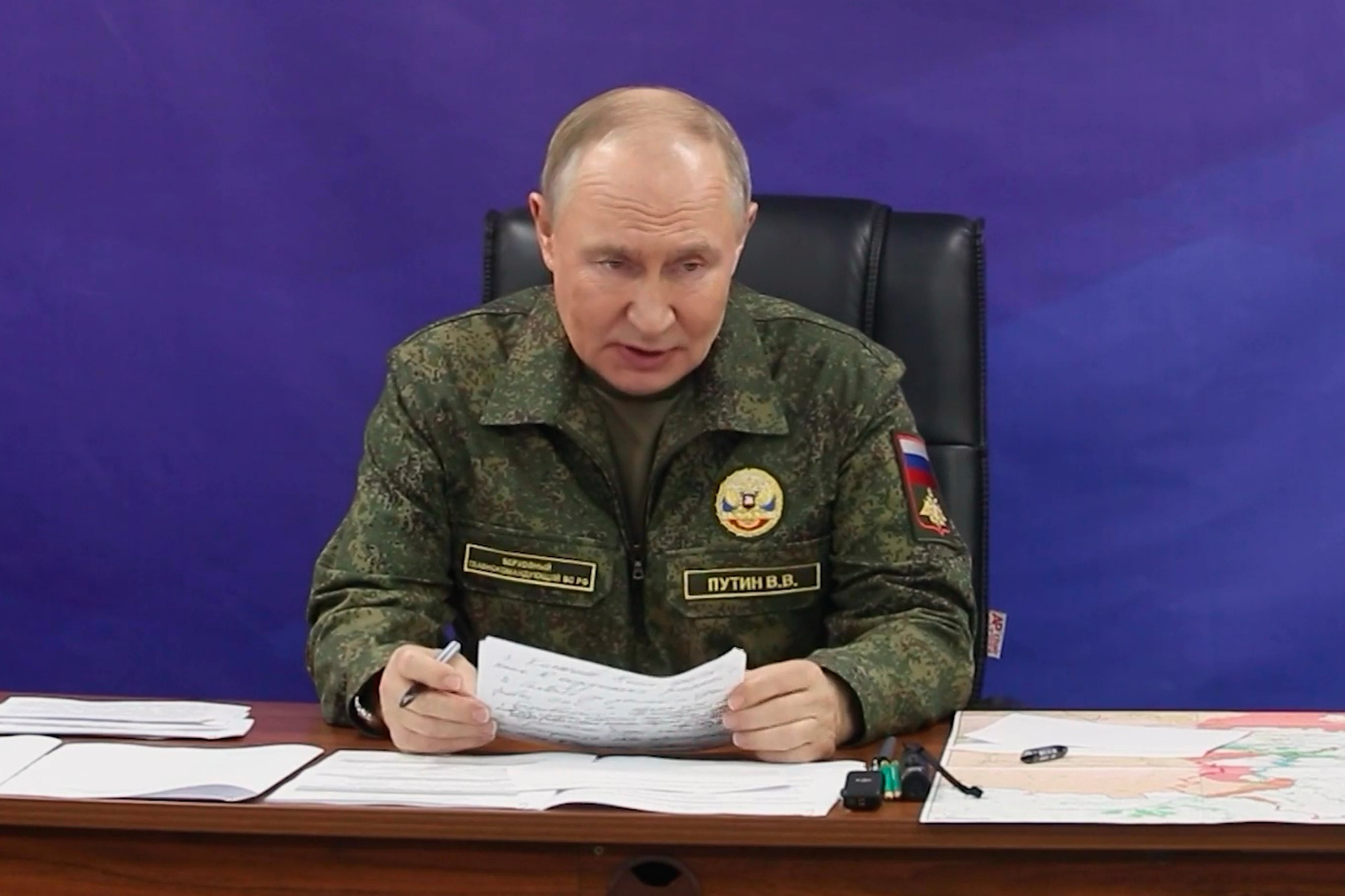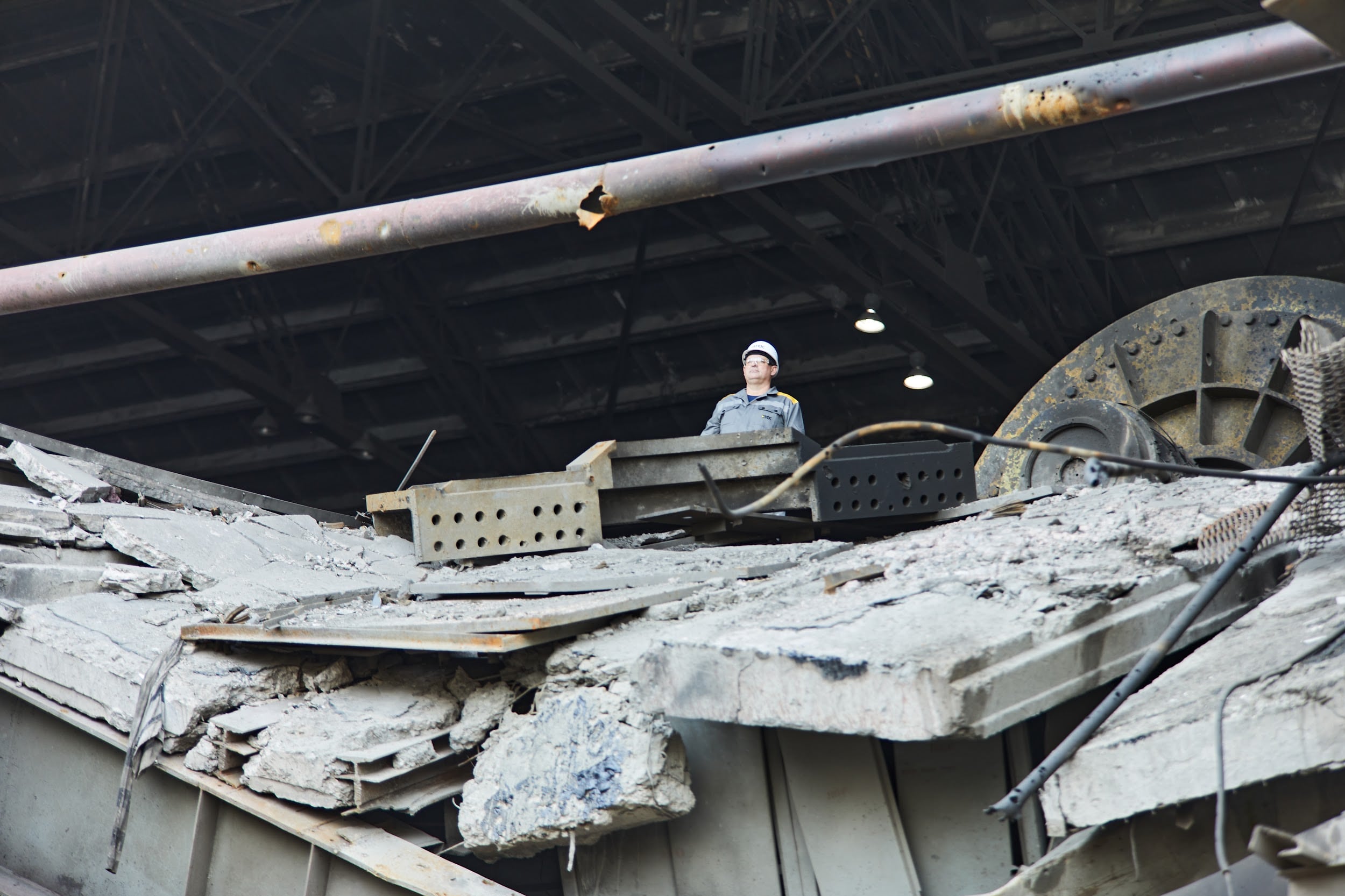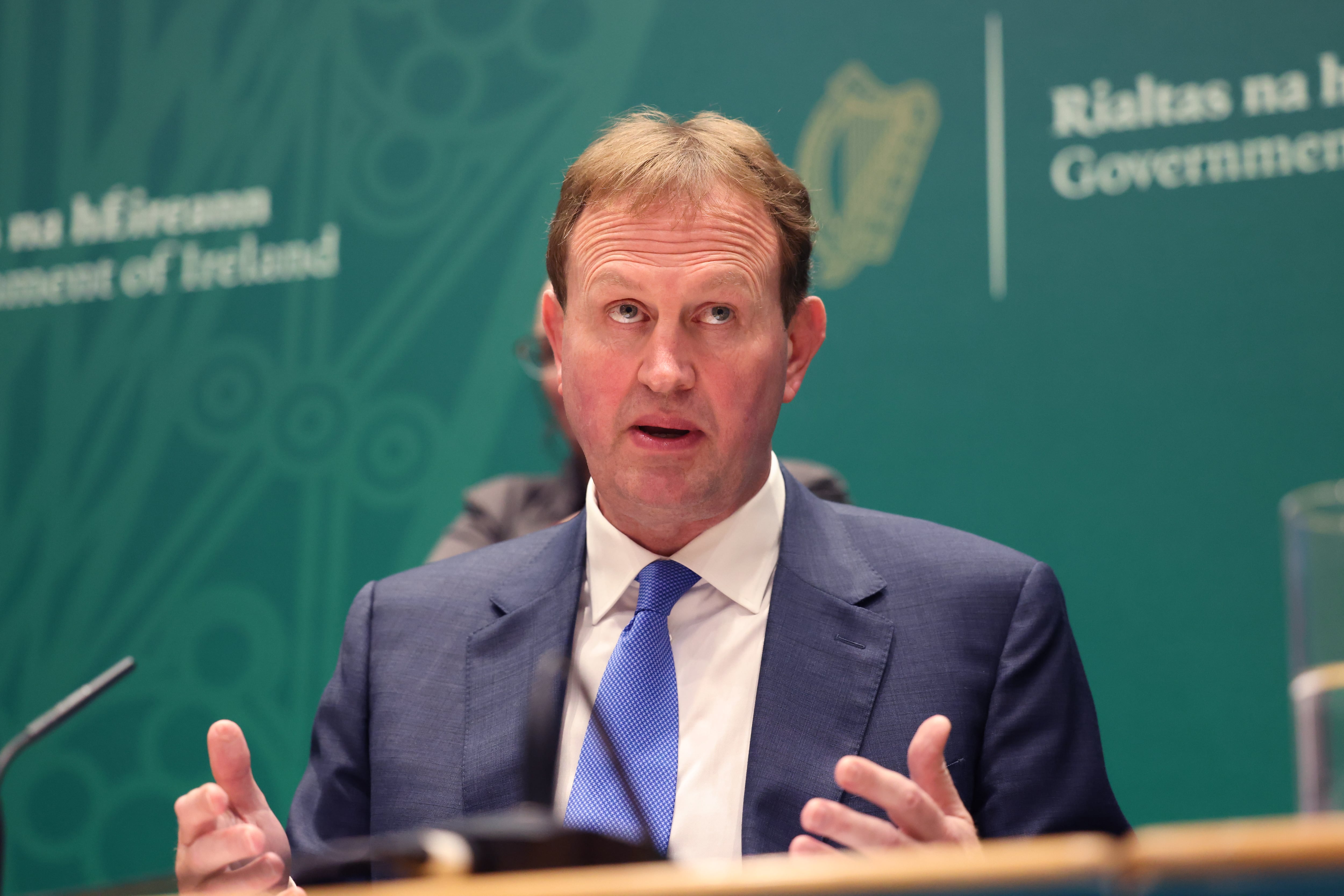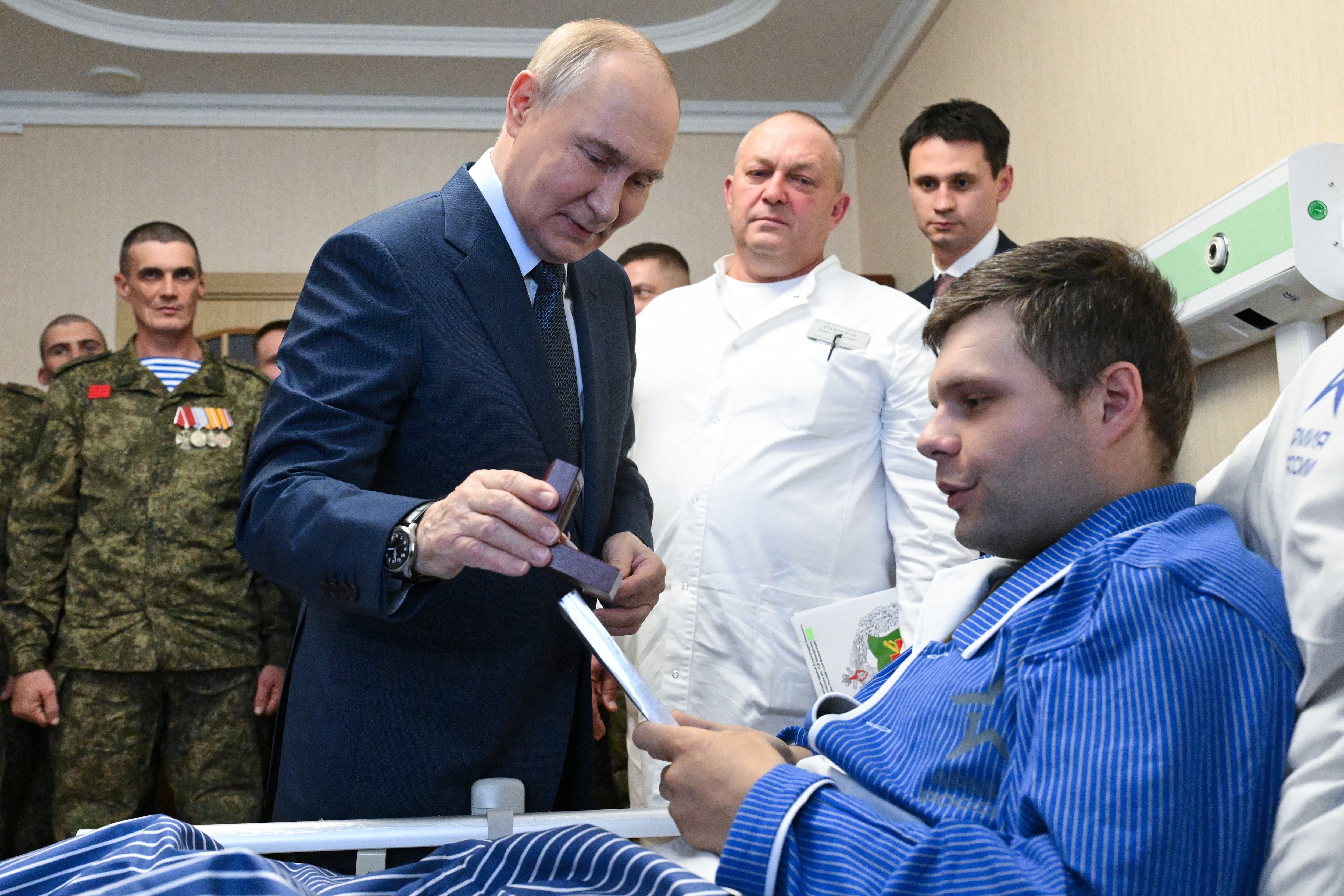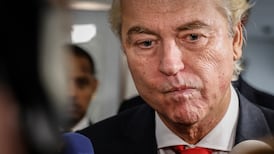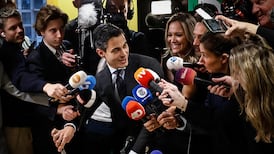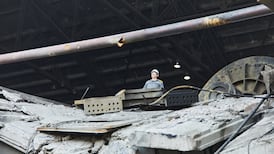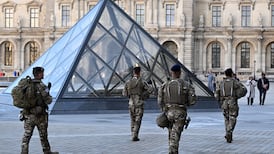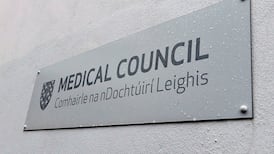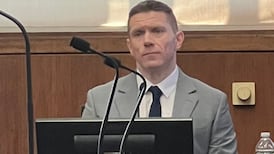Poland’s conservative president Karol Nawrocki will use his inaugural visit to Berlin on Tuesday to push for greater efforts to defend European skies from Russian incursions.
As Russia and Belarus conduct military exercises on its doorstep, including reportedly firing a hypersonic missile, Poland is still reeling from last week’s Russian drone incursion.
Poland shot down Russian drones last Wednesday in the first known action of its kind by a Nato member during Russia’s war in Ukraine. Days later, Romania scrambled jets when a Russian drone breached its airspace.
The violation prompted Britain to summon the Russian ambassador on Monday. The incursions were “utterly unacceptable”, a British foreign office spokesperson said.
READ MORE
On Friday, two days after the Poland shot the Russian drones down, joint war games between Moscow and Belarus began. Reuters news agency reported on Monday that exercises were observed at a Belarus training ground by US military officers. They were among representatives from 23 countries including two other Nato member states – Turkey and Hungary.
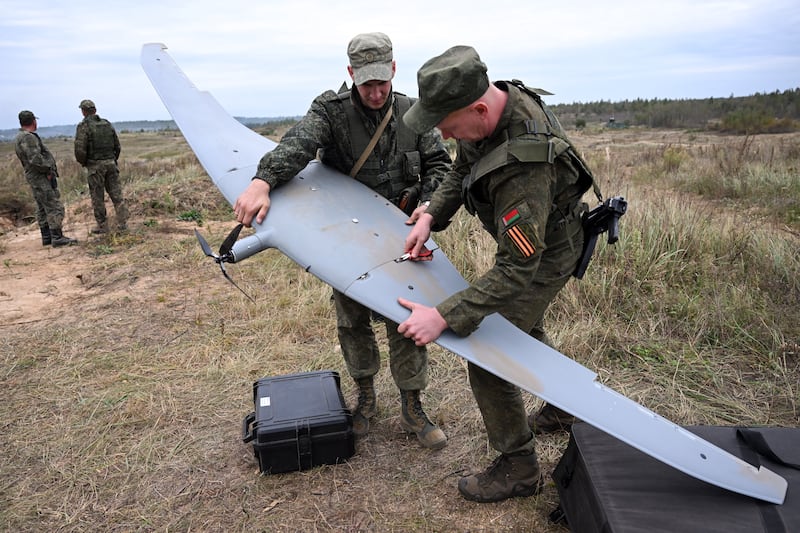
In the latest sign of warming ties between Washington and Minsk, the Belarusian ministry released video showing two uniformed US officers thanking defence minister Viktor Khrenin for being invited and shaking his hand.
In Poland, the Russian drone incursions marked a baptism of fire for the country’s new leadership duo: liberal prime minister Donald Tusk and Karol Nawrocki, the new face of Poland’s national conservative opposition.
The Polish constitution demands the government co-operate on security and defence with the president, who is head of Poland’s armed forces.
But the head of state is making broader political interventions – not all of which reflect his legal competences – on Polish government policy.
In Berlin, Mr Nawrocki will step up recent demands by Mr Tusk for greater efforts to secure Europe’s skies, in particular gaining Ukrainian expertise on building – and shooting down – drones.
Another point of general agreement is Polish opposition to the Mercosur trade deal with South American states, approved by the European Commission earlier this month and now with member states for approval.
While Germany is pushing for the agreement, Poland – with its sizeable agricultural sector – shares the concerns of France, Ireland, Italy and others.
In advance of his trip to Germany, Mr Nawrocki said his “duty as president is to say that we do not agree to a deal that destroys Polish agriculture”.
Warsaw is working with other capitals to form a blocking minority of the deal in its current form. But Mr Nawrocki’s interest in the issue may create tensions as the Warsaw government works on safeguards for Polish farmers.
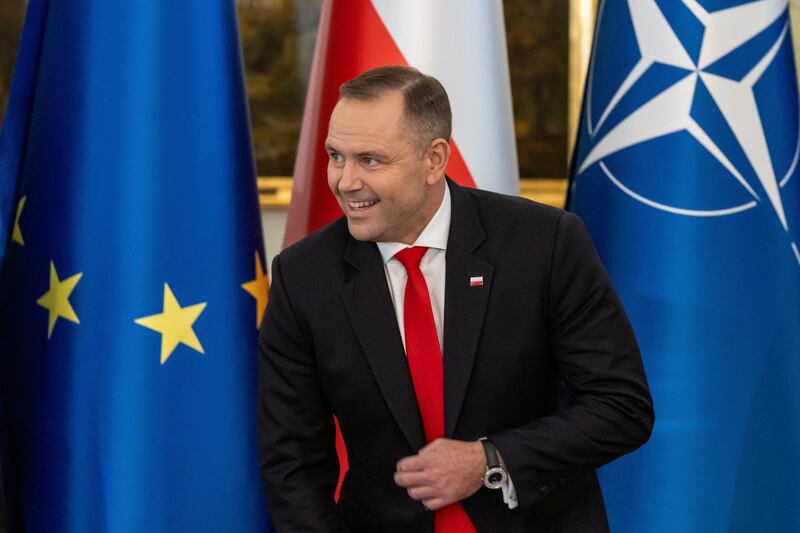
Certain to increase tensions is Mr Nawrocki’s revival of the wartime reparations issue, a major bone of contention with Berlin and a favoured political issue of the president’s backers in the opposition Law and Justiceparty.
They view post-war agreements, in particular a 1953 reparation renunciation by Poland vis-a-vis both German states, as invalid because they were made by Poland’s communist leadership under pressure from Moscow.
In advance of his visit to Berlin, Mr Nawrocki said: “We have to clarify the question of reparations from the German state, something I will demand as Polish president for the good of all.”
Berlin views all such compensation demands as settled, while the Polish government, as represented by its foreign minister Radoslaw Sikorski, views the case for compensation as “hopeless”.
Instead Warsaw and Berlin are working on initiatives to boost German awareness of Nazi-era war crimes in Poland.
On Monday, Germany’s ruling Christian Democratic Union suggested that Berlin was ready to find a “modern-day translation of Germany’s obligation” to Poland in the form of additional security guarantees, financial aid, weapons systems or army units.
Thinking along similar lines, Mr Sikorksi urged greater efforts from Germany to control North Sea and Baltic Sea access to Russian-linked oil tankers.
“We have three of these tankers daily,” he told the Süddeutsche Zeitungdaily. “We don’t allow airlines with questionable reputations to land in our airports, why this complete anarchy in the Baltic Sea?” – Additional reporting: Reuters

